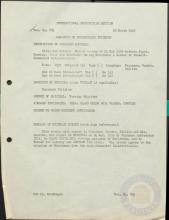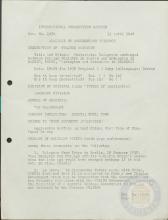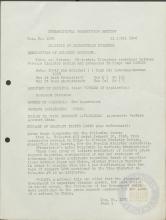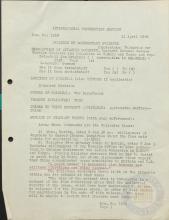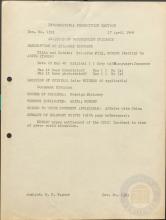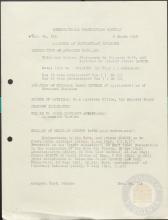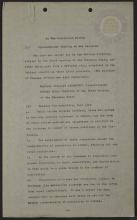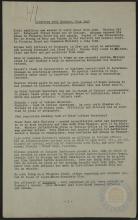Description:
Reports on the testimony of General Hayao Tada who told the Tribunal that "no plans for the Pacific War were made during his tenure of office as Vice-Chief of General Staff between August, 1937 and December, 1938." He repeatedly emphasized that "fighting in China had broken out spontaneously." The prosecution objected to his testimony and brought up the earlier affidavit given by Colonel David D. Barrett who "believed that the incident at Wanping, near Marco Polo Bridge, was the 'carefully prepared excuse for the second stage of Japan's undeclared war on China.'" Also discusses the defense cross-examination of Wang Len-chai, magistrate of Wanpinghsian and the introduction of the prosecution's witness, A. A. Dorrance, "formerly manager of the Standard Oil Company in Hankow."

